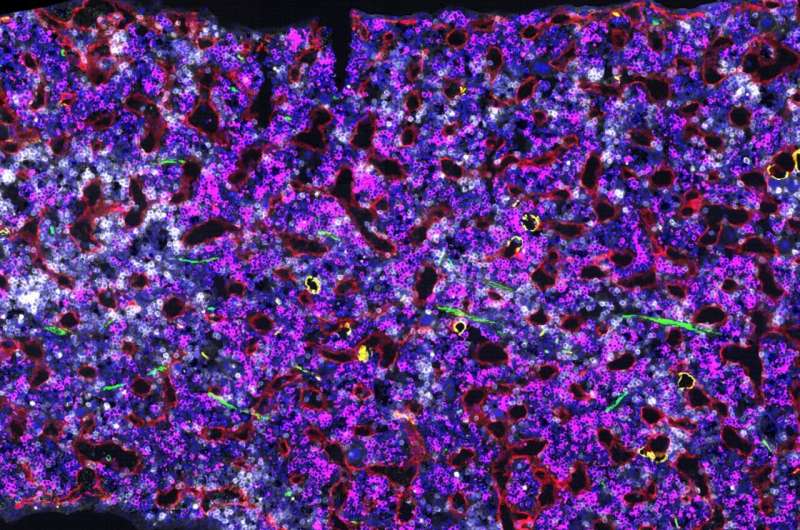Understanding the differences in the mutations that accumulate in our blood stem cells as we age is important to understand how and why blood cancers develop and hopefully how to intervene before the onset of clinical symptoms.
As we age, stem cells in the bone marrow naturally accumulate mutations and with this, we see the emergence of clones, which are groups of blood cells that have a slightly different genetic makeup. Sometimes, specific clones can lead to blood cancers like leukemia.
When people donate blood, stem cells in the bone marrow make new blood cells to replace the lost blood and this stress drives the selection of certain clones.
In research published Blood, the team at the Crick, in collaboration with scientists from the DFKZ in Heidelberg and the German Red Cross Blood Donation Center, analyzed blood samples taken from over 200 frequent donors—people who had donated blood three times a year over 40 years, more than 120 times in total—and sporadic control donors who had donated blood less than five times in total.

